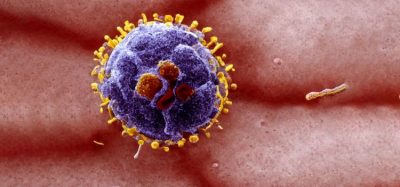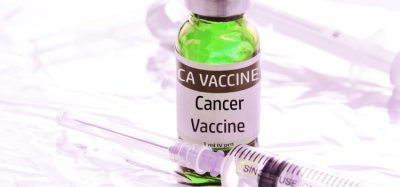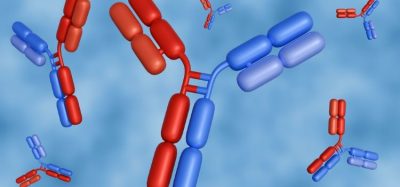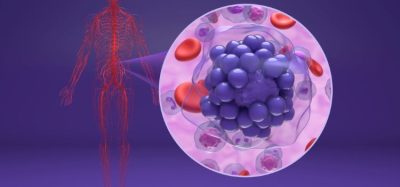Merck announces results from Phase 2b study of MK-8237, an investigational house dust mite sublingual allergen immunotherapy tablet
Posted: 5 March 2014 | European Pharmaceutical Review
Merck (NYSE:MRK), known as MSD outside the United States and Canada, today announced results from a Phase 2b study evaluating two doses of its investigational house dust mite sublingual immunotherapy tablet (MK-8237). The data were presented for the first time during a late-breaking oral session at the 2014 Annual Meeting of the American Academy of Allergy, Asthma & Immunology (AAAAI) in San Diego.
The study was conducted in 124 adult patients 18 years of age and older with house dust mite-induced allergic rhinitis, with or without conjunctivitis, using an environmental exposure chamber. In the study, MK-8237 at once-daily doses of 6 Development Units (DU) and 12 DU produced a significant dose- and time-dependent reduction in average total nasal symptom score (TNSS) over the last four hours of the chamber challenge at week 24 of treatment compared to placebo (-27%=6 DU, -49%=12 DU; p<0.05 for both vs. placebo), the primary efficacy endpoint of the study. TNSS is the total score for four nasal symptoms: itchy nose, blocked nose, runny nose and sneezing.
“Merck is committed to the research and development of sublingual tablet immunotherapy options for the treatment of allergic rhinitis,” said Dr. Sean Curtis, vice president, Respiratory and Immunology, Merck Research Laboratories. “We look forward to continuing with Phase 3 research, which will provide further insight into the safety and efficacy of MK-8237.”
Study Design
In this double-blind, single-site, Phase 2b study, 124 adults, 18 years of age or older, with house dust mite-induced allergic rhinitis, with or without conjunctivitis, were randomized to receive 6 DU (n=41) or 12 DU (n=42) of MK-8237 sublingual tablets once daily for 24 weeks or placebo (n=41). Sensitivity to house dust mite allergen was determined by specific IgE testing. Patients with unstable uncontrolled/partially controlled or severe asthma were excluded from the study, as were patients with forced expiratory volume in 1 second (FEV1) <70 percent of predicted value. Participants were exposed to the house dust mite allergen using an environmental exposure chamber at weeks 8, 16 and 24. This method allows for controlled and reproducible conditions that provide a constant concentration of allergen over a six-hour period with patients recording symptoms every 15 minutes.
Study Results
Both doses of MK-8237 showed a significant dose- and time-dependent reduction in average TNSS over the last four hours of the chamber challenge at week 24 of treatment compared to placebo (-27%=6 DU, -49%=12 DU; p<0.05 for both vs. placebo). Key secondary efficacy endpoints of the study were average TNSS over the last four hours of the chamber challenge at weeks 8 and 16 compared to placebo, and average total symptom score (TSS) over the last four hours of the chamber challenge at week 24 compared to placebo. TSS is the total score for four nasal symptoms (itchy nose, blocked nose, runny nose and sneezing) and two ocular symptoms (gritty feeling/red/itchy eyes and watery eyes). MK-8237 demonstrated dose-dependent reductions versus placebo in average TNSS at week 8 (-8%=6 DU; p=NS and -20%=12 DU; p<0.05) and at week 16 (-18%=6 DU, -30%=12 DU; p<0.05 for both vs. placebo). MK-8237 also demonstrated dose-dependent reductions versus placebo in average TSS at week 24 (-29%=6 DU, -52%=12 DU (p<0.05 for both vs. placebo).
In this study, the most common adverse events (incidence ≥ 5%) occurring in patients receiving MK-8237 6 DU, 12 DU or placebo, respectively, were throat irritation (34%, 52%, 0%), mouth edema (24%, 24%, 0%), lip swelling (5%, 17%, 2%), oral pruritus (15%, 14%, 0%), dyspepsia (2%, 10%, 0%), ear pruritus (0%, 7%, 0%), swollen tongue (0%, 5%, 0%), oropharyngeal swelling (0%, 5%, 0%) and pharyngeal edema (2%, 5%, 0%). There were no local swellings of severe intensity and no serious adverse events reported in patients treated with MK-8237. The majority of adverse events in this study were assessed as mild or moderate. There were no investigator reported systemic allergic reactions or reactions treated with epinephrine for either dose of MK-8237.
A Phase 3 study of MK-8237 in adolescents and adults with house dust mite-induced allergic rhinitis is currently screening patients. Details of the study can be viewed on ClinicalTrials.gov.








